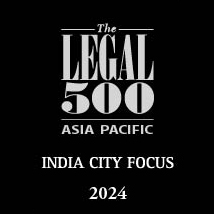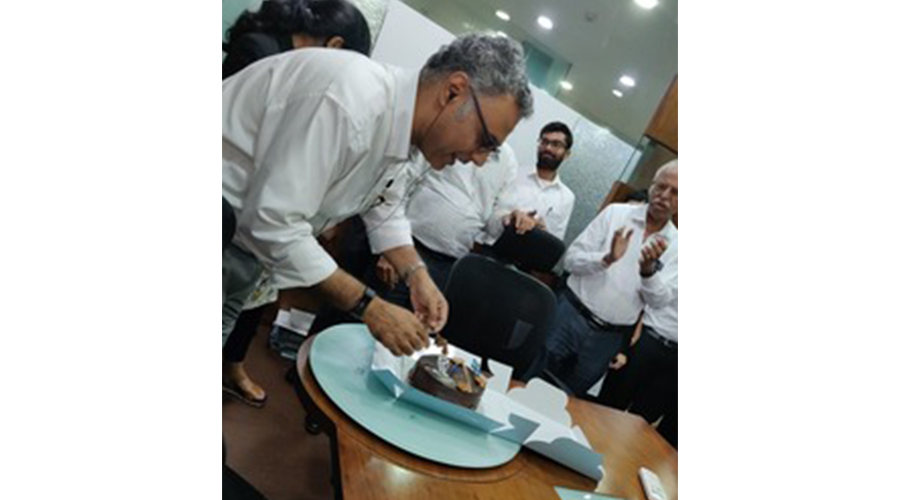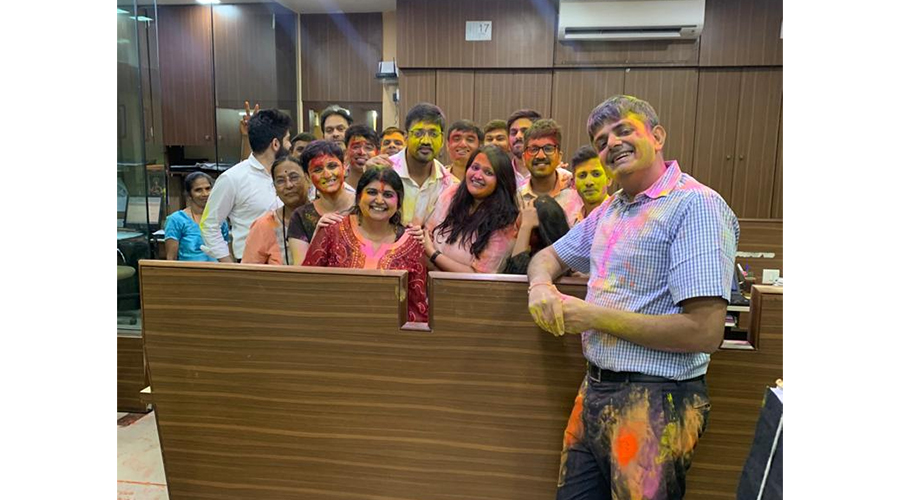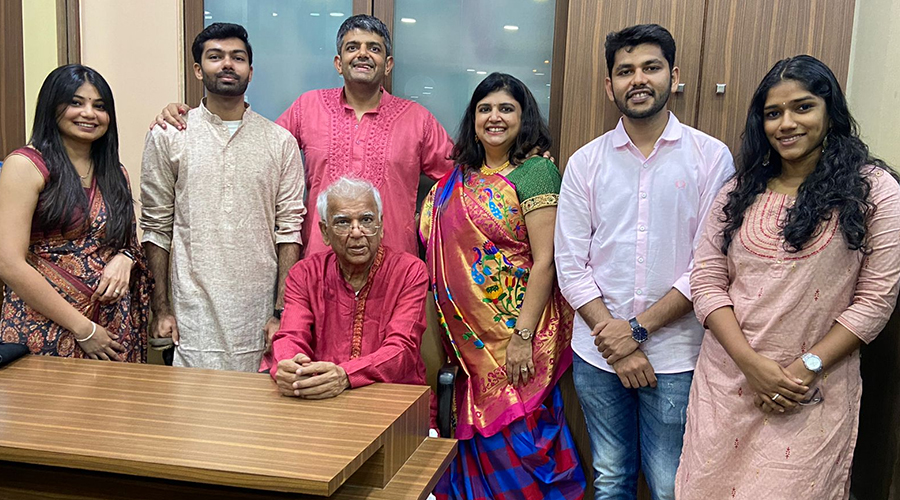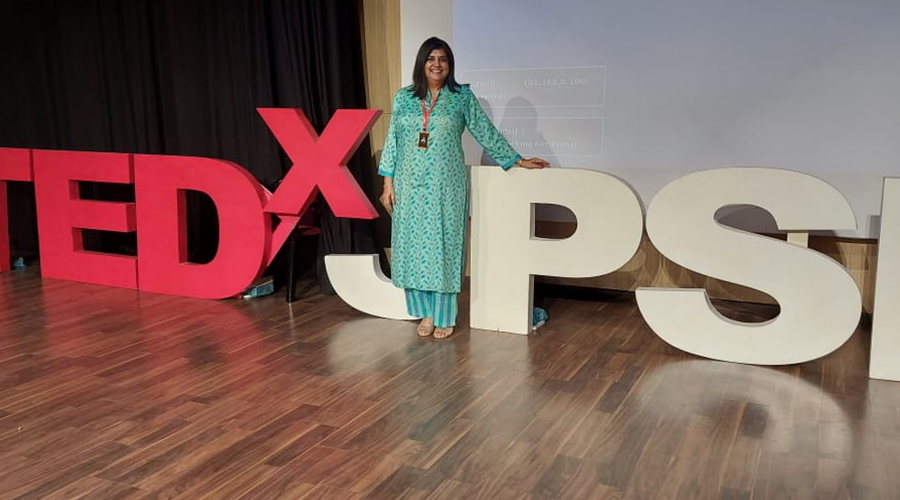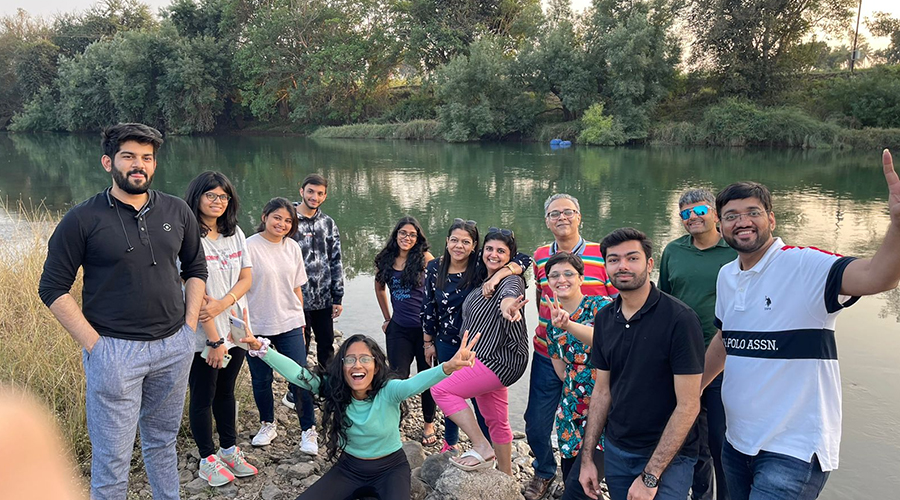CELEBRATING MORE THAN YEARS
PRACTICE AREAS
Dispute Resolution
Insolvency & Restructuring
General Corporate & Corporate Advisory
Real Estate & Property Laws
Employment & Labour Law
Regulatory Practice
Family Constitution, Succession, Estate Planning, Trust & Private Clients
Intellectual Property Rights
Mergers / Amalgamations / Business Transfer
Foreign Investments
Tax
Banking & Finance
Cyber Law, Privacy, Data Protection & Information Technology
Startups
PEOPLE
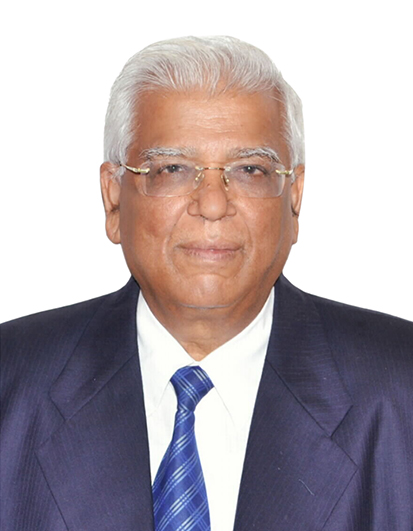
RA ShahManaging Partner
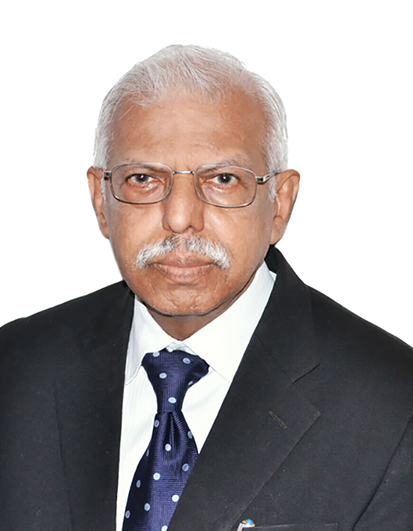
Niranjan parekhSenior Partner

Bhushan ShahPartner

Purvi AsherPartner

Shreya DalalAssociate Partner

Meeta kadhiAssociate Partner

Akash JainAssociate Partner

Sanjana SaddyOf-Counsel

Bhavin shahOf-Counsel
News and Articles
legal issues in Mumbai real estate transactions
Top Legal Issues Faced in Mumbai Real Estate Transactions: How to Avoid Them
Mumbai’s real estate market remains one of the most active and valuable in India. High property prices, redevelopment projects and complex ownership histories often lead to legal issues in Mumbai real estate transactions. Buyers, sellers and investors frequently encounter disputes arising from title defects, regulatory non-compliance, unclear contracts and delayed possession. Many of these issues can be avoided with careful legal planning and informed decision making.
This blog examines the most common legal issues faced in Mumbai real estate transactions and explains how parties can proactively avoid them through due diligence, documentation and regulatory compliance.
Why Real Estate Transactions in Mumbai Are Legally Complex?
Mumbai’s urban development includes old tenanted buildings, cooperative housing societies, redevelopment projects and mixed-use developments. Each category involves different legal frameworks and regulatory approvals. Multiple authorities such as municipal bodies, planning authorities and regulatory regulators play a role in property transactions. In addition, historical land records, redevelopment agreements and society bye laws add layers of complexity. Understanding these risks is the first step towards avoiding disputes.
Legal Issues in Mumbai Real Estate Transactions
Legal issues in Mumbai real estate transactions typically arise due to inadequate verification, unclear ownership structures and failure to comply with statutory requirements. These issues affect both residential and commercial properties. While some disputes are unavoidable, many stem from preventable errors during the transaction process. Early identification of legal risks significantly reduces exposure.
Unclear or Defective Property Title
Title disputes remain one of the most common legal problems in Mumbai. Properties may have incomplete ownership chains, unresolved inheritance claims or unregistered transfers. In redevelopment projects, title issues often arise due to pending conveyance from the developer to the housing society. Buyers who rely solely on possession without verifying title face serious risk. Comprehensive title due diligence before purchase is essential to confirm ownership and encumbrance status.
Non-Compliance with Regulatory Approvals
Properties constructed or altered without proper approvals frequently face legal challenges. Missing commencement certificates, deviations from sanctioned plans or lack of occupation certificates can lead to penalties or demolition notices. Buyers must verify approvals issued by local planning authorities before proceeding. Relying on marketing brochures instead of official documents often leads to disputes. Regulatory compliance ensures long-term legality and marketability of the property.
RERA Related Disputes and Delays
While the Real Estate Regulation Act has improved transparency, disputes still arise due to delayed possession, misleading disclosures or failure to meet declared timelines. Many buyers do not verify RERA registration or ongoing compliance before investing. RERA protection is effective only when buyers actively monitor disclosures and enforce rights. Understanding RERA obligations helps buyers avoid delayed or stalled projects.
Ambiguous or One-Sided Agreements
Sale agreements and development contracts often contain clauses favouring one party. Buyers frequently sign agreements without reviewing termination rights, delay compensation or escalation clauses. Ambiguous drafting creates room for interpretation disputes. Standard templates may not reflect project-specific risks. Careful review of contractual terms ensures balanced rights and enforceability.
Disputes in Redevelopment Projects
Redevelopment projects involve complex arrangements between developers, societies and existing occupants. Delays, altered plans and disputes over area allocation are common. Lack of clarity in development agreements and consent procedures often leads to prolonged litigation. Registered societies with clear documentation are better positioned to protect member interests during redevelopment.
Issues with Cooperative Housing Societies
Society related disputes include refusal of transfer approvals, disputed membership, unpaid dues and bye law violations. Buyers often overlook society compliance and pending disputes during purchase. These issues later affect resale, redevelopment or access to amenities. Reviewing society records and litigation history reduces post-purchase conflict.
Stamp Duty and Registration Errors
Incorrect stamp duty payment or delayed registration can invalidate transactions or attract penalties. Many parties underestimate stamp duty implications during family transfers or joint ownership changes. Unregistered documents have limited legal value. Registration formalises ownership and protects against future claims. Proper calculation and timely registration are non-negotiable.
Encumbrances and Financial Liabilities
Properties may be subject to mortgages, charges or unpaid dues. Failure to identify encumbrances exposes buyers to recovery actions by lenders or authorities. Encumbrance certificates and bank no-dues letters must be verified before transaction completion. Clear financial records ensure clean transfer.
Tax Implications and Compliance Gaps
Capital gains tax, goods and services tax in certain transactions and income tax compliance are often overlooked. Incorrect structuring may result in unexpected tax liabilities or penalties. Tax considerations should align with legal structuring decisions.
Integrated legal and tax planning prevents surprises.
How to Avoid These Legal Issues?
Avoiding legal disputes requires a proactive approach. Independent due diligence, verification of approvals and careful contract review are essential. Buyers and investors often consult a top real estate law firm and lawyers in India to identify hidden risks, review documentation and ensure regulatory compliance. Legal support at the transaction stage is more cost-effective than dispute resolution later.
Importance of Professional Legal Review
Professional review adds objectivity and expertise. Lawyers assess title, compliance and contractual risk beyond surface-level checks. Complex commercial or high-value transactions benefit from advice tailored to business objectives. Engaging best corporate lawyers in Mumbai helps align legal compliance with commercial strategy. Early legal involvement strengthens transaction security.
Monitoring Compliance After Transaction
Legal risk does not end at registration. Buyers must ensure timely society membership, payment of dues and monitoring of redevelopment or regulatory changes. Ongoing vigilance prevents future disputes.
Conclusion
Legal issues in Mumbai real estate transactions are common due to the city’s complex property landscape. However, most disputes are preventable with informed planning, proper documentation and professional guidance. Buyers, sellers and investors who prioritise legal compliance reduce risk, protect capital and ensure long-term ownership security. In a market as dynamic as Mumbai, legal awareness is not optional but essential for successful real estate transactions.
FAQs on Legal Issues in Mumbai Real Estate Transactions
Q1. What is the most common legal issue in Mumbai property deals?
Title defects and incomplete documentation are the most frequent issues.
Q2. Does RERA registration guarantee timely possession?
No. RERA provides remedies but cannot guarantee completion in all cases.
Q3. Are society approvals legally binding?
Society approvals are essential for administration but do not replace title verification.
Q4. Is legal due diligence mandatory?
It is not mandatory but strongly recommended to avoid disputes.
Q5. Can legal issues delay resale of property?
Yes. Unresolved disputes or non-compliance significantly affect resale.
Co-operative Housing Society Registration in Mumbai
How to Register a Co-operative Housing Society in Mumbai?
Co-operative Housing Society Registration in Mumbai is an essential legal process for residents who wish to manage their residential property collectively and transparently. With Mumbai’s dense urban landscape and growing apartment culture, registering a co-operative housing society provides legal recognition, structured governance, and long-term protection of residents’ rights. Many housing complexes operate informally for years, unaware of the legal and financial risks involved. Without registration, residents face difficulties in property management, redevelopment decisions, dispute resolution, and compliance with government authorities. This guide explains the complete registration process, legal framework, documentation, timelines, and common challenges involved in forming a co-operative housing society in Mumbai.
Legal Framework Governing Housing Societies in Maharashtra
Housing societies in Mumbai are governed by the Maharashtra Co-operative Societies Act 1960 and the Maharashtra Co-operative Societies Rules. These laws regulate the formation, functioning, and management of Co-operative societies across the state. Registration is handled by the office of the Deputy Registrar of Co-operative Societies under the Department of Co-operation, Government of Maharashtra. The official government portal of the Maharashtra Department of Co-operation provides updated circulars, forms, and procedural guidelines, which applicants should refer to during the registration process.
Why Registration of a Co-operative Housing Society Is Important?
Registration provides the society with a separate legal identity. This enables the society to own property, open bank accounts, enter into contracts, and initiate legal proceedings in its own name. Registered societies enjoy better control over maintenance collection, vendor management, redevelopment negotiations, and compliance with municipal authorities such as the Brihanmumbai Municipal Corporation. Registration also ensures accountability among managing committee members and protects the collective interests of residents.
Eligibility Conditions for Registering a Housing Society
A minimum of ten individuals from different families is required to form a Co-operative housing society in Mumbai. These members must be eligible to enter into a contract and should reside in flats within the same building or housing complex. The building must be fit for habitation and ideally have an occupation certificate issued by the local authority. In redevelopment or builder promoted societies, additional conditions may apply depending on the project structure.
Documents Required for Co-operative Housing Society Registration
The documentation process plays a crucial role in registration approval. Applicants must submit proposed bye laws, application forms, and member declarations as prescribed under the Maharashtra Co-operative Societies Rules. Key documents include proof of ownership or allotment letters, identity and address proof of members, building completion documents, and a certificate from the architect confirming the building structure. The society must also submit a bank certificate confirming the opening of a provisional account in the proposed society name. All documents must be accurate and consistent, as discrepancies often lead to delays or rejection.
Step by Step Process of Co-operative Housing Society Registration in Mumbai
1. Application Submission
The registration process begins with submitting the application to the Deputy Registrar of Co-operative Societies having jurisdiction over the property location. Applications are filed online or offline depending on current government procedures. The application must include all supporting documents along with the prescribed registration fee. Applicants should ensure compliance with the latest government circulars issued by the Registrar.
2. Scrutiny and Verification
After submission, the Registrar scrutinises the application for legal compliance. This includes verification of member eligibility, building documents, and proposed bye laws. If deficiencies are identified, the Registrar issues a notice seeking clarification or additional documents. Timely responses are crucial to avoid rejection.
3. Registration Certificate Issuance
Once satisfied, the Registrar grants approval and issues a Certificate of Registration. This certificate legally establishes the Co-operative housing society. The society is then required to adopt bye laws formally, appoint office bearers, and commence statutory compliance such as maintaining registers and filing annual returns.
Time Frame for Registration
The registration process generally takes two to three months, subject to document completeness and administrative workload. Delays often occur due to incorrect documentation or failure to respond to Registrar queries within stipulated timelines. Engaging professionals familiar with local procedures helps streamline the process and reduce delays.
Common Challenges Faced During Registration
One of the most common issues is incomplete documentation, especially missing building approvals or ownership proof. Disputes among members regarding management roles or contribution amounts can also stall the process. Builder related delays are another frequent obstacle, particularly when conveyance documents are pending. Legal guidance becomes important in such scenarios to protect residents’ interests and ensure compliance. Residents often consult the best property lawyers in Mumbai during complex registrations involving redevelopment, builder disputes, or title irregularities.
Post Registration Compliance and Responsibilities
After registration, the society must comply with statutory obligations such as maintaining books of accounts, conducting annual general meetings, and filing audit reports with the Registrar. The managing committee must operate transparently and in accordance with the approved bye laws. Non compliance can attract penalties or administrative action by the Registrar. Regular reference to government notifications issued by the Department of Co operation ensures ongoing compliance and avoids legal complications.
Role of Professional Assistance in Society Registration
While residents can undertake registration independently, professional assistance significantly reduces procedural errors. Legal experts help in drafting bye laws, verifying documents, and liaising with authorities. Complex housing projects involving mixed use properties or commercial units often require advice from the best corporate law firm and lawyers in Mumbai to ensure regulatory compliance and risk mitigation. Professional involvement also proves valuable in handling objections raised by the Registrar and expediting approvals.
Redevelopment and Conveyance After Registration
Registered societies gain legal standing to pursue conveyance of land and building from developers. This becomes crucial during redevelopment negotiations. Without registration, residents lack authority to enter redevelopment agreements or protect ownership rights. Timely registration therefore strengthens the society’s position in long term property planning.
Conclusion
Co-operative Housing Society Registration in Mumbai is not merely a procedural formality. It is a foundational step towards lawful property management, collective decision making, and protection of residents’ rights. Understanding the legal framework, documentation requirements, and registration process helps residents avoid unnecessary delays and disputes. With proper planning and professional support, registration can be completed smoothly and efficiently. A registered society ensures transparency, accountability, and long-term stability for housing communities in Mumbai.
Frequently Asked Questions
Q1. What is the minimum number of members required to register a housing society in Mumbai?
A minimum of ten members from different families is required for registration.
Q2. Can a housing society be registered without an occupation certificate?
Registration is possible in certain cases, but an occupation certificate is strongly recommended to avoid objections.
Q3. How long does Co-operative Housing Society Registration in Mumbai take?
The process usually takes two to three months, subject to document verification and administrative approvals.
Q4. Is online registration available for housing societies in Mumbai?
The Maharashtra government provides online facilities through the Department of Co operation portal, subject to prevailing rules.
Q5. Can tenants become members of a housing society?
Tenants cannot become members unless they hold ownership or allotment rights in the property.
Q6. What happens if a society is not registered?
Unregistered societies lack legal recognition, cannot own property, and face difficulties in banking, redevelopment, and dispute resolution.
legal protection for under-construction property Mumbai,
How to Legally Protect Yourself When Buying Under-Construction Property in Mumbai?
Buying an under-construction property in Mumbai can be attractive due to flexible payment plans and lower entry costs. However, delays, regulatory breaches and project abandonment have made buyers increasingly cautious. Securing legal protection for under-construction property Mumbai buyers requires careful verification of approvals, contractual safeguards and regulatory compliance before committing funds. Many disputes arise because buyers rely on marketing assurances instead of enforceable legal documentation. This guide explains how buyers can legally protect themselves when purchasing an under-construction property in Mumbai, with a focus on statutory safeguards, contractual rights and risk mitigation strategies.
Why Under-Construction Properties Carry Higher Legal Risk?
Under-construction projects involve promises of future delivery rather than immediate possession. Buyers commit funds while construction, approvals and financing remain ongoing. This creates exposure to delay, deviation from plans or financial distress of the developer. Mumbai’s real estate market includes redevelopment projects, phased developments and joint ventures, which further complicate risk assessment. Legal protection depends on proactive verification rather than post-dispute remedies. Understanding the legal framework before booking reduces exposure significantly.
Legal Protection for Under-Construction Property Mumbai Buyers
Legal protection for under-construction property Mumbai buyers is primarily governed by the Real Estate Regulation Act and local planning laws. These laws impose disclosure, financial discipline and delivery obligations on promoters while granting buyers statutory remedies. However, RERA protection applies only if buyers verify compliance and execute legally sound agreements. Independent due diligence remains essential.
Verify RERA Registration and Project Details
The first step in legal protection is verifying project registration with the Maharashtra Real Estate Regulatory Authority. Every eligible under-construction project must be registered before marketing or sale. Buyers should check the official MahaRERA portal for project registration number, promoter details, approvals, timelines and quarterly updates. A missing or inactive registration is a major red flag. Registration ensures access to statutory remedies if the project is delayed or misrepresented.
Scrutinise Land Title and Development Rights
RERA registration does not cure defective land title. Buyers must ensure the developer has clear and marketable title to the land or lawful development rights. Title documents, development agreements and power of attorney instruments should be reviewed. In redevelopment projects, consent and ownership records must be verified carefully. Defective title can render even a registered project legally vulnerable.
Check Statutory Approvals and Sanctioned Plans
Under-construction projects require multiple approvals from planning and municipal authorities. Buyers should verify commencement certificate, sanctioned plans and environmental approvals where applicable. Construction must match sanctioned plans. Any deviation may result in penalties, demolition notices or refusal of occupation certificate. Approvals issued by the Brihanmumbai Municipal Corporation form a crucial part of this verification.
Review the Agreement for Sale Carefully
The agreement for sale defines rights, obligations and remedies. RERA mandates certain standard clauses, but buyers must still review the document carefully. Key clauses include possession timeline, compensation for delay, carpet area definition, termination rights and force majeure conditions. One-sided clauses favouring the developer weaken buyer protection. The final agreement must match the draft uploaded on the MahaRERA portal.
Understand Payment Structure and Escrow Safeguards
RERA requires promoters to deposit a significant portion of buyer funds into a project-specific escrow account. This reduces diversion of funds. Buyers should ensure payment schedules align with construction milestones and statutory requirements. Advance payments without progress increase financial risk. Clear payment terms support enforceability and reduce disputes.
Avoid Informal Booking and Side Agreements
Many buyers make token payments or sign informal booking forms before legal verification. Such documents offer limited legal protection. Side letters or oral assurances regarding discounts, possession or amenities are difficult to enforce. Only registered agreements carry legal weight. All commitments must be documented in the registered agreement.
Monitor Project Progress and Regulatory Updates
Legal protection does not end after signing. Buyers should monitor quarterly updates filed by the promoter on the MahaRERA portal. Construction progress, financial certification and approvals must be reviewed periodically. Silence or outdated disclosures may indicate distress. Early awareness allows buyers to take timely action.
Understand Remedies Available Under RERA
If the promoter delays possession or violates obligations, buyers may file complaints before MahaRERA. Remedies include refund with interest, compensation or direction to complete the project. Orders of the authority are enforceable and binding. Appeals lie before the appellate tribunal. Buyers facing complex compliance or enforcement issues often seek guidance from a top property law firm and lawyers in Mumbai to evaluate remedies and draft complaints effectively.
Importance of Independent Legal Due Diligence
While RERA provides statutory protection, it does not replace comprehensive due diligence. Buyers must independently verify title, approvals, society formation and local compliance. Legal due diligence identifies risks beyond regulatory disclosures. It also strengthens buyer position during negotiation. Skipping due diligence often leads to prolonged disputes later.
Home Loan and Bank Due Diligence Are Not Sufficient
Many buyers assume bank approval ensures legal safety. While banks conduct due diligence, their focus is on loan recovery, not buyer protection. Bank checks may not detect all regulatory or contractual risks. Buyers must conduct independent verification regardless of financing. Legal protection should not be outsourced entirely to lenders.
Handling Delays, Insolvency and Project Stalling
Under-construction projects may face delays due to funding issues, regulatory changes or insolvency proceedings. Buyers must understand exit options. RERA offers refund rights, but recovery may depend on promoter solvency. Insolvency proceedings add complexity. In prolonged disputes or enforcement matters, buyers may consult the best dispute resolution lawyers in Mumbai to pursue remedies strategically.
Tax and Financial Considerations
Stamp duty and registration are payable only at the agreement stage, not booking. Buyers should plan cash flow accordingly. Tax benefits linked to home loans depend on possession timelines. Delays may affect deductions. Financial planning should account for uncertainty in delivery schedules.
Common Mistakes Buyers Should Avoid
Rushing into booking without verification, relying on brochures, ignoring contractual clauses and delaying legal advice are frequent mistakes. Another error is assuming RERA registration guarantees delivery. Compliance reduces risk but does not eliminate it. Cautious and informed decision making remains essential.
Conclusion
Legal protection for under-construction property Mumbai buyers depends on proactive verification, informed contracting and continuous monitoring. While RERA has strengthened buyer safeguards, protection is effective only when buyers actively use the framework and conduct independent legal checks. Under-construction properties offer opportunity but carry inherent risk. Buyers who prioritise compliance, documentation and legal review reduce exposure significantly. In Mumbai’s dynamic real estate market, informed caution remains the strongest form of legal protection.
Frequently Asked Questions (FAQs)
Q1. Is RERA registration mandatory for all under-construction projects
Yes, unless specifically exempted under the Act.
Q2.Can buyers cancel booking for project delay
Yes. Buyers may seek refund or compensation under RERA for unjustified delay.
Q3.Does RERA guarantee project completion
No. RERA provides remedies but cannot guarantee completion in all cases.
Q4.Should buyers conduct legal due diligence even after RERA registration
Yes. RERA compliance complements but does not replace due diligence.
Q5.What if a project is stuck due to insolvency
Buyers may pursue remedies under RERA or insolvency law depending on circumstances.
RERA compliance in Mumbai,
How to Check RERA Compliance of a Mumbai Real Estate Project?
Buying property in Mumbai involves high financial stakes and long-term commitment. One of the most effective ways to reduce risk is to verify RERA compliance in Mumbai before investing in any real estate project. The Real Estate Regulation Act was introduced to protect homebuyers from misleading practices, delayed possession and lack of transparency. However, RERA protection applies only when buyers actively verify compliance rather than relying on verbal assurances.
This guide explains how to check RERA compliance of a Mumbai real estate project, what disclosures to review, common red flags and the legal consequences of non-compliance.
Why RERA Compliance Matters for Mumbai Property Buyers?
Mumbai’s real estate market includes redevelopment projects, under-construction developments and resale units. Many disputes arise because buyers fail to confirm whether a project is registered under RERA or whether the promoter is meeting statutory obligations.
RERA compliance ensures transparency in project approvals, timelines, financial management and contractual terms. A compliant project offers buyers statutory remedies in case of delay or misrepresentation. Failure to verify compliance may leave buyers without effective legal protection.
RERA Compliance in Mumbai and the Legal Framework
RERA compliance in Mumbai is governed by the Real Estate Regulation Act and the rules framed by the Maharashtra government. The Maharashtra Real Estate Regulatory Authority regulates registration, disclosures and enforcement within the state.
All real estate projects exceeding the prescribed threshold must be registered before advertising or selling units. Promoters must also comply with ongoing disclosure and reporting obligations throughout the project lifecycle. Non-compliance attracts penalties, registration suspension and buyer remedies.
Step One: Verify Project Registration on MahaRERA Portal
The first step in checking compliance is verifying project registration on the official MahaRERA website. Buyers should search using the project name, promoter name or registration number.
A valid registration confirms the project has obtained mandatory approvals and is legally permitted to market units. Absence of registration is a major red flag. Buyers should ensure the project status is active and not expired or revoked.
Step Two: Review Promoter and Project Details
Once registered, promoters must disclose detailed information. This includes promoter background, past projects, litigation history and financial disclosures.
Buyers should examine whether the promoter has a track record of delayed projects or regulatory violations. Repeated defaults across projects indicate higher risk. Transparency at this stage reflects the promoter’s compliance culture.
Step Three: Examine Approved Plans and Layouts
RERA requires promoters to upload sanctioned plans, layout approvals and development permissions. Buyers must verify that the flat being sold matches the approved configuration.
Any deviation between marketing material and sanctioned plans can result in future disputes. Buyers should also check for proposed changes and consent mechanisms. Municipal approvals issued by the Brihanmumbai Municipal Corporation form a crucial part of this review.
Step Four: Check Project Timelines and Completion Dates
Promoters must declare project completion timelines and phase-wise delivery schedules. These timelines are binding under RERA.
Buyers should assess whether timelines appear realistic and whether the promoter has a history of delays. Extensions granted by the authority must be disclosed and justified. Misrepresentation of timelines is actionable under RERA.
Step Five: Verify Financial Compliance and Escrow Requirements
RERA mandates promoters to deposit a significant portion of buyer funds into a dedicated escrow account. This ensures funds are used only for the specific project.
Buyers should review disclosures relating to financial management and certification by engineers and chartered accountants. While buyers cannot access bank statements, disclosure compliance indicates adherence to statutory safeguards. Financial discipline reduces the risk of project abandonment.
Step Six: Review Draft Agreement for Sale
RERA prescribes standard clauses for agreements for sale. Promoters must upload the draft agreement on the portal.
Buyers should compare the draft with the final agreement offered. Clauses relating to carpet area, possession, compensation and termination must align with RERA provisions. Unilateral or one-sided clauses are a warning sign.
Step Seven: Check Ongoing Quarterly Updates
Promoters must submit quarterly updates on construction progress, approvals and financial status. These updates help buyers track compliance in real time.
Lack of regular updates or outdated information may indicate non-compliance or project distress. Buyers should review updates consistently rather than only at the time of booking.
Step Eight: Identify Common Signs of RERA Non-Compliance
Common indicators of non-compliance include advertising without registration, inconsistent disclosures, refusal to share registration details and mismatch between approved plans and site conditions.
Promises of guaranteed returns or possession without contractual backing are also red flags. Buyers should remain cautious of informal commitments. Legal compliance should be document-driven, not promise-driven.
Legal Remedies Available for Non-Compliance
RERA provides buyers with the right to file complaints before the authority for delay, misrepresentation or violation of statutory obligations. Remedies include refund with interest, compensation or direction for completion. Appeals lie before the appellate tribunal. Buyers facing complex issues often seek assistance from the best property law firm and lawyers in India to assess remedies and draft complaints effectively.
Role of Due Diligence Beyond RERA
While RERA compliance is essential, it does not replace comprehensive legal due diligence. Buyers must also verify title, land ownership, society approvals and local compliance. RERA protects transactional transparency but does not cure defective title or land disputes. RERA compliance should form one component of a broader verification strategy.
Dispute Resolution and Enforcement
If a promoter fails to comply with RERA orders, enforcement mechanisms are available, including penalties and recovery proceedings. Persistent defaults may also give rise to civil or criminal remedies. Buyers involved in prolonged disputes may consult a dispute resolution law firm in Mumbai, India to manage litigation and enforcement strategy effectively. Timely action improves chances of relief.
Conclusion
Checking RERA compliance in Mumbai is a critical step for every property buyer. The RERA framework offers transparency, accountability and legal remedies, but only when buyers actively verify disclosures and monitor compliance. A compliant project reflects regulatory discipline, financial transparency and commitment to timelines. Buyers who invest time in verification reduce risk and strengthen their legal position. In Mumbai’s complex real estate environment, informed due diligence remains the strongest safeguard for long-term investment security.
FAQs on RERA Compliance in Mumbai
Q1. Is RERA registration mandatory for all Mumbai projects?
Registration is mandatory for projects exceeding the statutory threshold unless specifically exempted.
Q2. Can a buyer cancel booking for RERA non-compliance?
Yes. Buyers may seek refund or compensation for material violations under RERA.
Q3. Does RERA apply to redevelopment projects?
Yes. Redevelopment projects involving sale of new units require RERA registration.
Q4. How can buyers check if timelines are extended legally?
Extensions granted by MahaRERA are published on the official portal and must be reviewed.
Q5. Is RERA compliance sufficient for safe investment?
RERA compliance is essential but should be combined with independent legal due diligence.
MHCO Updates
Litigation Update
LITIGATION UPDATE I SUPREME COURT CLARIFIES LIMITATION LAW FOR POSSESSION SUITS BASED ON VOID SALE DEEDS
Contributors:
Mr Akash Jain, Associate Partner
Mr Divyang Salvi, Associate
The Supreme Court of India in Shanti Devi v. Jagan Devi & Ors. (2025 SCC OnLine SC 1961) has clarified that when a property ownership dispute arises from a sale deed that is void ab initio, the lawful owner can file for possession within twelve years under Article 65 of the Limitation Act. The ruling distinguishes void from voidable documents, streamlining the remedy for owners whose property rights are threatened by fraudulent transfers and reinforcing robust legal protection for genuine titleholders.
Facts in Brief:
The case involved a longstanding dispute over agricultural land in Haryana (“Suit property”). The Plaintiffs asserted ownership of a one-third share in land, alleging that the Defendant’s possession was based on a fraudulent sale deed dated 1973, which the alleged seller (Plaintiff) had never executed. The Plaintiffs sought permanent injunction, or in the alternative, joint possession of the land, and a declaration that the sale deed was void after 11 years. The Trial Court dismissed their suit, but the first Appellate Court and the High Court ruled in their favour. The Defendant appealed to the Supreme Court, arguing that the suit was time-barred and that the Plaintiffs failed to prove fraud or lack of execution of the deed.
Supreme Court Findings:
The Supreme Court confined itself to the issue of whether the Plaintiff’s suit was time-barred. It held that the suit, though filed eleven years after the impugned sale deed, was governed by Article 65 of the Limitation Act. The Court explained that suits for possession based on title are maintainable within twelve years when the impugned sale deed is void ab initio, and not merely voidable. The Court stressed that in such a case, the original owner’s right is not affected by a fraudulent or forged instrument, and there is no requirement to seek its cancellation within Article 59’s three-year window. The Court also highlighted the difference between fraud relating to the ‘character’ of a document (which renders it void) and as to its contents (which may make it voidable). Evidence clearly showed the Plaintiff never executed the deed or received consideration, confirming the judgment of the Lower Appellate Courts in the Plaintiff’s favour.
Impact:
This ruling clarifies the limitation law applicable in cases of fraudulent property transfers and offers practical assurance to property owners facing similar circumstances. The decision enables owners to challenge unlawful possession based on forged or fraudulent documents for up to twelve years after adverse possession begins, expanding access to remedy. By reinforcing the distinction between void and voidable transactions, the Court’s decision will streamline property litigation and strengthen legal certainty in title disputes. Stakeholders—in particular, landowners—must ensure careful record-keeping and timely action if their property rights are infringed by such transactions.
MHCO Comment:
The Supreme Court’s approach brings much-needed clarity to real estate litigation involving fraudulent sale deeds. By recognising the extended limitation window for actions based on void documents and minimising procedural hurdles, the ruling affirms substantive justice and legal security for legitimate landowners. The judgment will promote diligence, transparency, and fair outcomes in property disputes, contributing to overall real estate market stability in India.
Gaming Law Update
GAMING LAW UPDATE: PROMOTION AND REGULATION OF ONLINE GAMING ACT, 2025
Contributors:
Mr Bhushan Shah, Partner,
Ms Shreya Dalal, Associate Partner
Mr Abhishek Nair, Associate
On 22 August 2025, the Central Government enacted the Promotion and Regulation of Online Gaming Act, 2025 (“Gaming Act”). The Bill was passed by Parliament with remarkable speed, within seven minutes in the Lok Sabha and twenty-six minutes in the Rajya Sabha, before receiving Presidential assent the following day. The Gaming Act provides for the promotion of e-sports and online social games, while prohibiting online money games involving stakes or wagers for monetary gain. It also establishes a regulatory authority to oversee the sector and sets out stringent penalties for violations.
Recognition and Promotion of E-Sports and Social Games
The Gaming Act empowers the Central Government to formally recognise e-sports as a legitimate competitive sport. It may issue guidelines, establish training academies, provide incentives, and coordinate with States to promote such activities. Online social games designed for entertainment or educational purposes and not involving monetary stakes are also to be facilitated through registration mechanisms, awareness initiatives, and institutional support programmes.
Definitions under the Act
The Act introduces the following key definitions:
Online game: any game offered on a digital platform.
E-sport: skill-based competitive events without wagering.
Online social game: non-wagering, entertainment, or skill-development based online games.
Online money game: any game involving fees, deposits, or stakes in expectation of monetary or equivalent returns, excluding e-sports.
Recognition and Promotion of E-Sports and Social Games
The Gaming Act empowers the Central Government to recognise e-sports as a legitimate competitive sport through guidelines, training academies, incentives, and coordination with States. Both e-sports and online social games are subject to registration with the designated Authority, which may impose technical and playerprotection standards. Online social games for entertainment or educational purposes without monetary stakes will be promoted through registration mechanisms, awareness initiatives, and institutional support.
Prohibition of Online Money Games
The Gaming Act imposes a complete prohibition on offering, operating, advertising, or participating in online money games, including those offered from foreign jurisdictions. Banks and financial institutions are also prohibited from facilitating related transactions.
Penalties for violations:
Up to three years’ imprisonment and fines up to ₹1 crore for offering online money games or facilitating funds for online money games.
Up to two years’ imprisonment and fines up to ₹50 lakh for advertising online money games.
Enhanced punishments for repeat offences.
Non-compliance with directions may lead to penalties up to ₹10 lakh, suspension, or cancellation of registration. Offences under the prohibition of online money games are cognizable and non-bailable, and company officers may also be held liable. The Act further empowers investigation, search, and seizure (including of digital resources), and blocking of non-compliant services.
Authority and Regulatory Oversight
The Central Government may establish or designate an Authority to classify games, register permissible ones, address complaints, and issue directions.
MHCO Comment
The Gaming Act provides a comprehensive framework for the regulation of online gaming in India. It balances the encouragement of e-sports and social games with stringent restrictions on money-based gaming. However, the Gaming Act has already had a disruptive impact on the industry as leading platforms such as WinZO, Dream11, MPL, and PokerBaazi have already suspended their real-money offerings immediately following the enactment of the said Act, in a sector employing over 20 million people. By effectively shutting down the largest revenue-generating segment of the online gaming industry, the Gaming Act is eroding the growth in the sector. We believe that the Central Government ought to have issued market policy consultation papers and taken public comments before drastically resorting to passing the Gaming Act in such a hasty manner.
LITIGATION UPDATE
LITIGATION UPDATE: INDIVIDUALS LIABILITY IN CASE OF ONE PERSON COMPANY
Contributors:
Mr. Bhushan Shah, Partner
Mr. Aakash Mehta, Senior Associate
On 3 July 2025, the High Court of Bombay passed an Order setting aside directions passed by Arbitral Tribunal imposing personal liability on sole shareholder of One Person Company (OPC).
FACTS
Innovative Film Academy Private Limited (“Innovative”), is a One Person Company (“OPC”) incorporated under the provisions of Companies Act, 2013 formed by Mr. Saravana Prasad as its sole shareholder. Innovative entered into a Production Agreement dated 10 March 2021 (“Agreement”) with Endemol India Private Limited (“Endemol”) to produce episodes of the television show “Masterchef” in Tamil, Telugu, Kannada, and Malayalam. Endemol delivered the Tamil and Telugu episodes and raised invoices totaling approximately ₹15.93 crores, of which ₹4.45 crores was paid and ₹1.08 crores was adjusted against other dues, leaving an outstanding balance of approximately ₹10.40 crores. Disputes over these dues which lead to arbitral proceedings in turn resulting in the impugned interim order.
The Arbitral Tribunal directed both Innovative and Prasad to:
deposit ₹10.40 crores in a fixed deposit in a nationalized bank;
disclose all assets (movable and immovable) and all encumbrances, charges and attachment on such assets since March 2019;
disclose details of all companies and firms in which they are shareholders, directors or partners and the extent of their interest in such enterprises;
disclose all income-tax returns since March 2019 along with the profit and loss account and all ledger statements along with narrations; and
disclose details of all bank accounts held by them since March 2019.
Innovative and Prasad challenged these directions, arguing that imposing personal obligations on Prasad violated the limited liability framework of OPC under the Companies Act, 2013.
ISSUE
Does the limited liability of an OPC mean that the sole shareholder is not personally liable?
JUDGMENT
The High Court held that the order passed by Arbitral Tribunal erred in treating Innovative and Prasad as one entity, disregarding the legal distinction between an OPC and its sole shareholder. The Court pointed out that under Section 2(62) of the Companies Act, 2013, an OPC is a distinct juridical entity with limited liability, shielding the sole shareholder (Prasad) from personal liability for the company’s obligations. The Court further emphasized that the concept of OPC is inspired by global practices (e.g., in the EU, USA, UK, China, and Singapore), and was designed to ring-fence personal assets from business liabilities. The Arbitral Tribunal’s directions against Prasad, including the deposit and disclosures, conflicted with this fundamental policy of Indian law.
The Court further opined that that Prasad’s actions as the signatory to contracts or correspondence would not make him personally liable and such a view would undermine the statutory OPC framework. The Court further held the Arbitral Tribunal’s direction for Innovative to deposit monies in a fixed deposit is a balanced approach which protects Endemol’s interests without depriving Innovative of control over the funds.
The Bombay High Court partially allowed the appeals with ruling that the directions imposing obligations on Saravana Prasad for the deposit and disclosures were set aside as they violated the limited liability protections of OPC under the Companies Act, 2013. The Bombay High Court further held that the directions against Innovative, including the fixed deposit and disclosures of its assets, liabilities, and interests, were upheld as just and equitable interim measures. The Court also clarified that its observations were not intended to influence the final arbitration outcome.
MHCO COMMENT
In our opinion, this judgment strengthens the legal framework laid out in the Companies Act, 2013 for One Person Companies in India, affirming that sole shareholders cannot be held personally liable for company obligations unless there are specific contractual or factual grounds that justify the same. The order provides clarity for entrepreneurs using the OPC structure, ensuring their personal assets remain protected. The decision also underscores the judiciary’s restraint in interfering with arbitral orders unless they are violative of fundamental legal principles.
Real Estate Update
REAL ESTATE UPDATE: MAINTENANCE LEVY IN CONDOMINIUMS
Authors: Purvi Asher, Partner and Karishma Maheshwari, Associate
This case concerns a recent decision dated 4 August 2025 by the Bombay High Court in the case of Sachin Malpani and Ors. vs. Nilam Patil and Ors. The writ petition questioned the method of levying maintenance charges in a registered condominium under the Maharashtra Apartment Ownership Act, 1970 (“the Act”), and challenged the jurisdiction of the Deputy Registrar of Co-operative Societies in directing such charges to be apportioned based on undivided share.
Brief Facts
The petition stemmed from a dispute in the ‘Treasure Park’ condominium comprising 356 apartments. The petitioners, owning larger apartments (3BHK, 4BHK), objected to an order by the Deputy Registrar of Co-operative Societies, Pune, dated 8 July 2021, which directed that maintenance charges be levied proportionate to the undivided share of each owner, instead of the previously prevailing equal charge. The challenge was rejected by the Co-operative Court on 13 May 2022, prompting the present writ petition.
Issues for Adjudication
The core issues for adjudication were:
Whether the Deputy Registrar of Co-operative Societies had jurisdiction under the Act to pass such orders.
What is the correct method of levying maintenance charges- equal across apartments or proportionate to undivided share in common areas, as prescribed by law and the condominium’s Deed of Declaration.
Held
The Bombay High Court held that:
Notifications issued by the State Government validly conferred powers of the Registrar under the Maharashtra Co-operative Societies Act, 1960 onto the District Deputy Registrar, thus justifying the order's jurisdiction.
The Deed of Declaration provisions and Sections 6 and 10 of the Act require that both common profits and common expenses be distributed among apartment owners in proportion to their undivided interest.
The impugned resolutions and past practice of equal maintenance do not override statutory requirements; apartment owners with a higher undivided share must contribute proportionally to common expenses.
Relief
The Court dismissed the writ petition, upholding both the Deputy Registrar’s order dated 8 July 2021, and the Co-operative Court’s order dated 13 May 2022. The petitioners’ challenge was rejected, confirming the requirement of proportionate maintenance charges.
MHCO Comment
This judgment clarifies the application of the Act in the context of maintenance contribution in registered condominiums, emphasizing statutory compliance over majority resolutions. It confirms that statutory covenants in the Deed of Declaration and the Act must govern apportionment of expenses, ensuring fairness in financial obligations shared among owners according to their interest, preventing disproportionate burdens on smaller flat owners and aligning practice with the law.
2025 - MANSUKHLAL HIRALAL & CO.
Need Help? Chat with us

.jpg)

.jpg)


